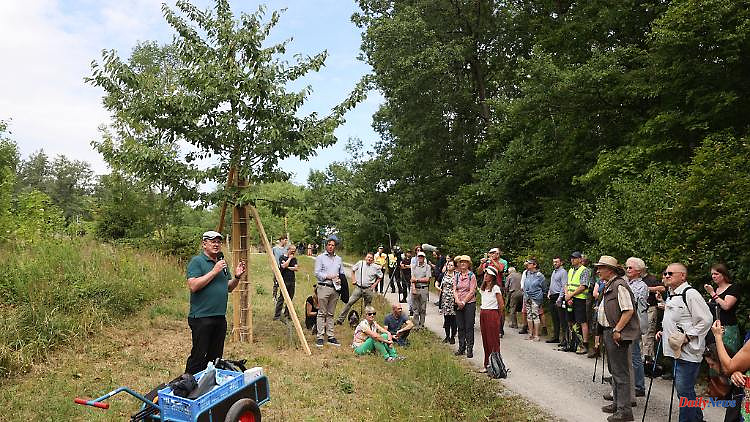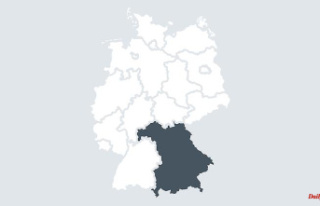Don't forget history - that was the message of a commemorative march to 111 memorial stones on the route of the former Buchenwald Railway near Weimar. They commemorate young Jewish victims of the National Socialists.
Weimar (dpa/th) - Stones now commemorate Jewish youths who were deported by the National Socialists from the Buchenwald concentration camp near Weimar to the Auschwitz extermination camp in 1944. The 111 memorial stones with their names were dedicated to them on Sunday near the railway line over which the transports with thousands of people who were abducted from all over Europe ran. Before that, a commemorative march formed from the main station in Weimar, in which Thuringia's Prime Minister Bodo Ramelow (left) also took part. The procession was accompanied by musicians from the Yiddish Summer Weimar.
He first stopped at the spot where seven memorial trees for concentration camp victims, including children, had been cut down in July. The crime had caused outrage nationwide - not just among prisoner organizations that suspected a political background.
For him, the attack on the memorial trees revealed the same mental attitude as that of the perpetrators during the Nazi era - not just those who committed crimes against people, "but also those who kept the wheels turning," said Ramelow. "It's up to us that we make it clear that we're looking, we're not looking away."
History should not be allowed to be thrown away. "There is no place for bird shit statements about the Nazi era or 180-degree turns in the German culture of remembrance," said Ramelow. He indirectly alluded to statements by AfD politicians. It was important to him to set an example against forgetting.
According to the memorial, the trees are to be replanted. The investigations into the perpetrators would be conducted by the Thuringian State Criminal Police Office. The stones with the names of Nazi victims are a living, growing memorial site, said Ramelow. He was pleased with the initiatives to continue the project.
According to the memorial, in 1944 the SS sent more than 2,000 sick and weak Jewish men, women and children from Buchenwald to Auschwitz for extermination. One such transport left Buchenwald station in October. Among the 1,188 Jews on this train were 111 minors. They are now remembered by the memorial stones, which were designed by volunteers and are part of a memorial on the Buchenwaldbahn Memorial Path. According to the memorial, a memorial stone is to be laid for each deported child and youth.
By the end of the Second World War, the Nazis had deported 280,000 people to the Buchenwald concentration camp. About 56,000 of them were murdered or died from starvation, disease and medical experiments. On April 11, 1945, US troops liberated the camp.












